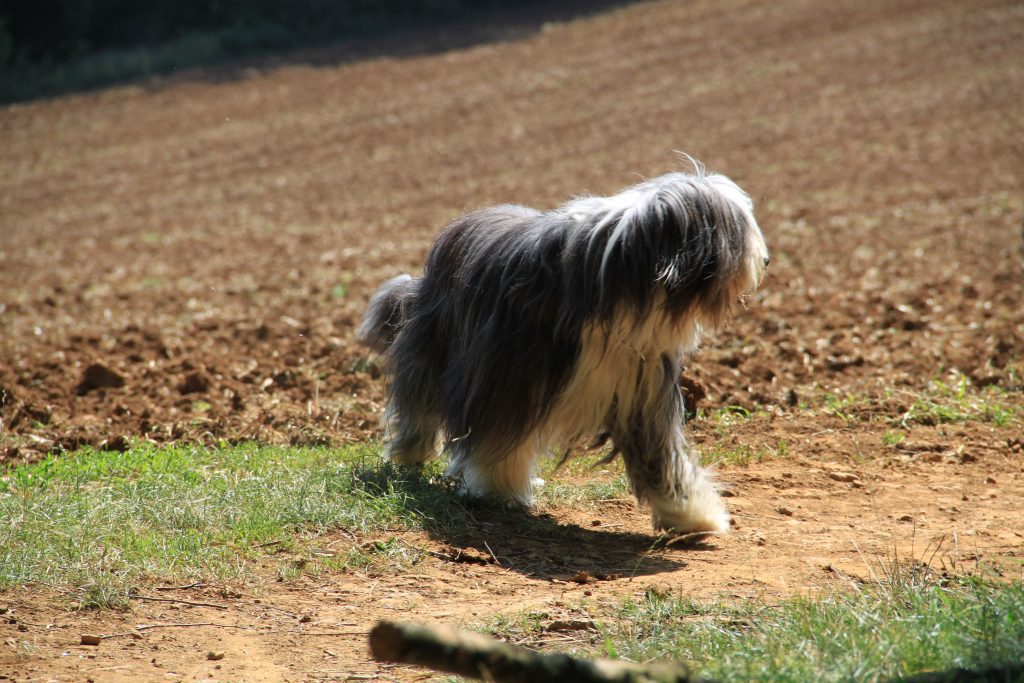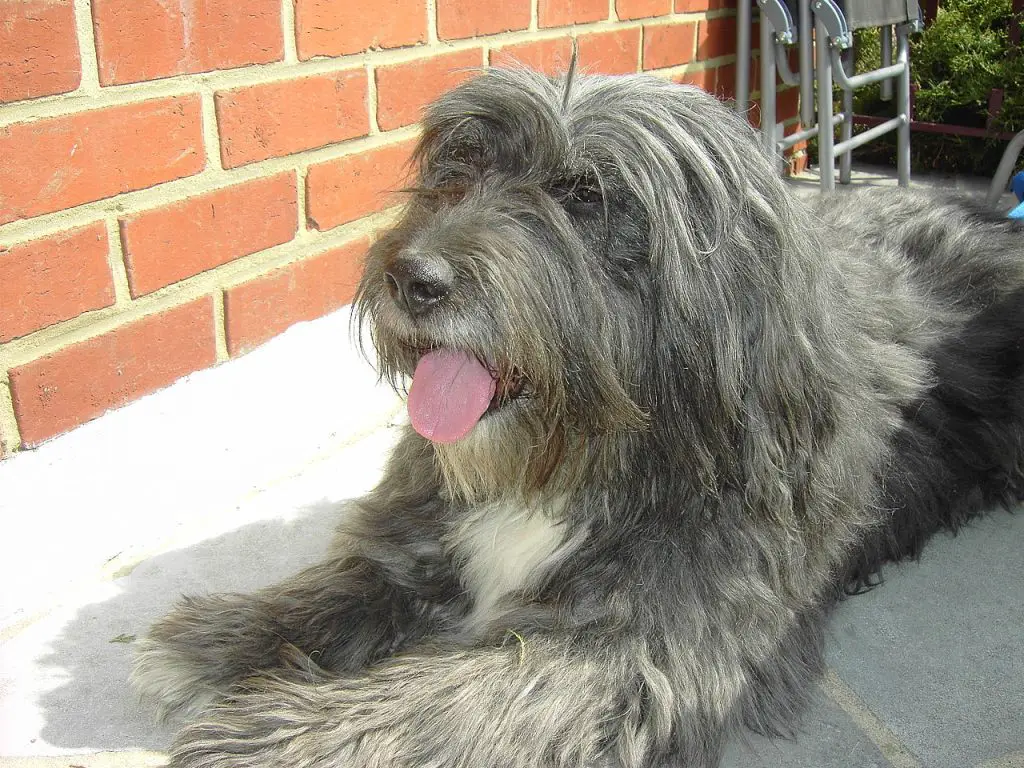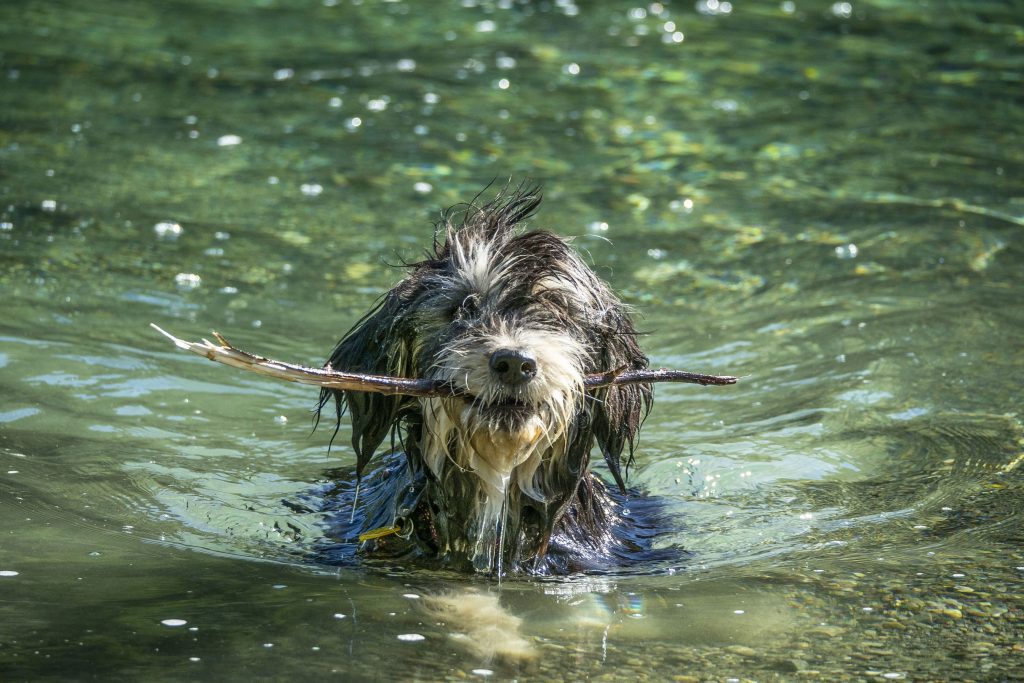Bearded Collies were bred as herding dogs but these days, they enjoy their status as indoor pets. They are one of the most famous breeds in the USA. However, if you are planning on getting a Bearded Collie, there are some things you should know.
I have cleared my evening and done some research. What I found out about the Bearded Collies is pretty interesting.
- Key Takeaway
- 9 Things You Need To Know About Bearded Collies
- FAQs
- Q: What is a Bearded Collie?
- Q: What are the typical characteristics of a Bearded Collie?
- Q: How big do Bearded Collies get?
- Q: Do Bearded Collies require a lot of grooming?
- Q: Are Bearded Collies good with children and other pets?
- Q: Are Bearded Collies easy to train?
- Q: Do Bearded Collies need a lot of exercise?
- Q: Are Bearded Collies prone to any health issues?
- Q: Are Bearded Collies good watchdogs?
- In Conclusion
Key Takeaway
- Bearded Collie maintenance involves regular grooming due to their long, thick double coat, plenty of exercise to meet their high energy levels, a balanced diet for their health, and consistent training and socialization due to their intelligent and sociable nature.
- The Bearded Collie is known for its energetic, intelligent, and friendly temperament, with a love for playfulness and an inherent desire for companionship and interaction.
- The Bearded Collie is a medium-sized dog with a robust build, featuring a long, thick double coat that often covers their eyes, a broad skull, large nose, expressive eyes, and a tail that’s carried low unless when excited or in motion.
9 Things You Need To Know About Bearded Collies
Here are 9 things you need to know before you get a Bearded Collie:
1. Bearded Collie Maintenance

Bearded collies are gentle, loyal, playful, and loving dogs. They make great family pets and do well with children. Bearded collies need to be exercised daily and thrive in a home with a yard where they can run and play.
Bearded Collies require a lot of exercise and need plenty of space to run and play. Just like all double-coated dogs, even the Bearded Collie does shed. But, with regular brushing, you can minimize the shedding. Most owners groom their dogs once or twice a week, which is enough to keep the coat in great condition.
Bearded Collies are considered high-maintenance dogs because they require a lot of daily exercise, they require constant grooming, and are prone to health issues such as seizures, retinal atrophy, and other.
The biggest shedding occurs during the puppy shed when the puppy changes hair, which is around one year of age. Just like with all dogs, you should also regularly check your Bearded Collie’s ears, eyes, nails, and teeth and clean them or clip them if needed.
As a bearded collie owner, you should set out a routine where you would check the well-being of your dog, and the length of their coat, as well as make sure they are getting enough exercise each day.
2. The Bearded Collie Temperament
The bearded collie is a very versatile breed. They are able to herd sheep, but they can also be used as service dogs, therapy dogs, and obedience dogs. They are gentle and loving with their family, but they can also be very protective. Bearded collies are very intelligent and easily trained.
Bearded collies are herding dogs by nature and love to work. They are very intelligent dogs that are easy to train. Bearded collies excel in agility, obedience, flyball, and tracking trials. They also make great therapy dogs due to their gentle dispositions.
One of the best things about bearded collies is their temperament. They are friendly, playful dogs that love spending time with their families. They can be strong-willed at times but are overall obedient dogs.
Bearded collies are not an aggressive breed. They are easily adaptable dogs and carry out their work with dedication. In general, early socialized Bearded Collies get along with other dogs, cats, and kids.
3. Bearded Collie Appearance

Bearded collies are medium-sized dogs that range in height from 20-24 inches and weight from 40-60 pounds. Males are usually larger than females. The coat of the bearded collie is long, shaggy, and thick. It is weather-resistant and does not shed much. The coat comes in black, blue, brown, fawn, or grey with white markings.
Bearded collies have a coat that is unique among dogs. It is coarse and wavy, and it hangs down to the dog’s knees. The coat protects the dog from rain and cold weather. Bearded collies must be groomed regularly or their coats will become matted and tangled. Many people find the coat of a bearded collie to be very attractive.
4. Bearded Collie Barking Habits
Bearded collies bark for a variety of reasons. They may be trying to herd other animals, warning their pack of potential danger, or simply expressing excitement or joy. Whatever the reason, it’s important to understand why your bearded collie is barking so you can help them communicate more effectively.
Bearded Collies are notorious for their barking habits. Their constant ability to bark makes them excellent watchdogs. Even though they are no longer used as herding dogs, it is in their genes and they might try to herd other animals, or even you.
If your bearded collie is barking excessively, it could be a sign of frustration or boredom. Make sure they are getting enough exercise and mental stimulation throughout the day. If you think your dog may be barking out of anxiety, talk to your veterinarian about possible solutions such as behavior modification training or medication.
Most importantly, never punish your dog for barking – this will only make the problem worse.
Here are a few tips for dealing with a Bearded Collie’s barking:
- Don’t punish your Bearded Collie for barking. This will only make them more anxious and increase the likelihood of them barking in the future.
- Try to figure out why your Bearded Collie is barking. Is it because they’re bored? Excited? Hungry? Once you know the reason, you can work on addressing the underlying issue.
- Provide your Bearded Collie with plenty of exercise. A tired dog is a good dog, and a good way to tire them out is by giving them plenty of opportunities to run and play.
- Teach your Bearded Collie some basic obedience commands. This will help you better communicate with them and give them something to do instead of bark all the time.
5. Bearded Collies and Water

The Bearded Collie, or Beardie, is a herding breed of dog once used primarily by Scottish shepherds. Today, they still excel at sheepherding but are also considered great family pets.
They’re medium-sized dogs with an average weight of 50-60 pounds and a lifespan of 12-14 years. But what really sets the Beardie apart is their love of water – they love nothing more than playing in rivers and lakes (or puddles, if that’s all that’s available!).
Bearded Collies love water and will have no issue of accompaniying you for a swim.
This affinity for water makes them excellent swimmers, and they’re often used as rescue dogs. They’re also popular as Agility dogs – their nimbleness and athleticism make them perfect candidates for navigating obstacle courses.
If you’re looking for a herding breed that’s also great with kids and loves to get wet, the Bearded Collie is definitely the dog for you!
If for some reason your Bearded Collie doesn’t know how to swim, It is possible to teach them how to swim says AKC. You can start by getting them to the water often until they are very comfortable enough to go by themselves.
Never pressure your Bearded Collie to swim if they are not feeling like it. Just take them to shallow water and be next to them. The next thing you know, their instincts will kick in and they will start swimming.
6. Bearded Collies are Hypoallergenic
Bearded collies are considered to be one of the more hypoallergenic dog breeds, and they may be a good option for those who suffer from allergies. This is because these dogs have a coat that does not shed as much as other breeds, which means there is less dander in the environment.
Bearded collies also require relatively little grooming, so their fur will not release as many allergens into the air either. If you are considering getting a bearded collie and you suffer from allergies, it is important to spend time with the dog before making your final decision. This will help you determine if this breed is the right fit for you.
However, it is important to note that there isn’t a dog that is 100% hypoallergenic. Although Bearded Collies are considered hypoallergenic, they may cause allergies in humans when their dander and saliva are inhaled. Bearded Collies that spend a lot of time indoors can be particularly troublesome because their microscopic allergens become airborne and linger in the air we breathe.
Bearded Collies that live outdoors produce less dander, but they bring pollen and dust inside on their fur, which can also trigger allergic reactions. Some people are so sensitive to dogs that they break out in a rash or hives just by petting an animal. Others develop asthma after being around dogs for long periods of time.
7. History of the Bearded Collie
The Bearded Collie, or Beardie, is a herding breed of dog once used primarily by Scottish shepherds. By the early 1900s, however, the breed had become popular among British aristocrats and had begun to spread throughout Europe. The Beardie eventually made its way to North America in the 1950s and has since become a popular family pet.
Though their exact origins are unknown, it is thought that the Bearded Collie descends from a long line of European herding dogs. The first record of the breed dates back to 1514 when a Scottish nobleman gifted King James IV with two “shaggy-haired” dogs. In 1771, another Scottish nobleman wrote about a breed of dog that closely resembles the modern Beardie.
The Bearded Collie was first recognized by the Kennel Club in 1955 and by the American Kennel Club in 1977. Today, they are still used as working dogs on farms and ranches, but they are also popular companions and show dogs. Beardies are intelligent, playful, and loyal – perfect qualities for any family pet!
8. Bearded Collie’s Common Health Issues
Bearded Collies are a healthy breed with few common health issues. Some of the more common problems include hip dysplasia, eye diseases, and allergies.
- Hip Dysplasia: Hip dysplasia is a condition in which the hip joint does not develop properly. This can lead to pain and lameness in the affected dog. Bearded Collies with hip dysplasia may need surgery or other treatment to improve their quality of life.
- Eye Diseases: Bearded Collies are prone to several different eye diseases, including cataracts, progressive retinal atrophy (PRA), and glaucoma. Eye disease can cause blindness and should be treated as soon as it is diagnosed.
- Allergies: Bearded Collies are prone to allergies, both food and environmental. Allergic reactions can range from mild to life-threatening, so it is important to work with your veterinarian to identify and avoid triggers.
If you think your Bearded Collie may be sick, it is important to contact your veterinarian right away. Early diagnosis and treatment can improve the chances of a full recovery.
Be sure to keep up with regular check-ups and vaccinations to help prevent common health problems in your Bearded Collie. By working closely with your veterinarian, you can help ensure a long and healthy life for your furry friend.
9. Bearded Collie Lifespan
Bearded Collies are a breed of dog that has a lifespan of about 12-14 years. They are considered medium-sized dogs and typically weigh between 40 and 55 pounds. Bearded collies are bred for their herding abilities and make great family pets. Some common health concerns associated with the breed include hip dysplasia, eye problems, and allergies.
They are relatively healthy dogs but can be prone to a few health problems. Be sure to ask your breeder about the health history of the parents of any puppies you may be considering before making your final decision. If you are up for the challenge, the bearded collie is a great dog breed to add to your family!
If you’re looking for a fun-loving dog that will be by your side for many years to come, the bearded collie may be just right for you!
FAQs
Q: What is a Bearded Collie?
A: A Bearded Collie is a medium-sized dog breed known for its shaggy coat and playful personality.
Q: What are the typical characteristics of a Bearded Collie?
A: Bearded Collies are known for being intelligent, active, and sociable. They are also very loving and make great family pets.
Q: How big do Bearded Collies get?
A: Bearded Collies are medium-sized dogs and typically weigh between 40-60 pounds and stand about 20-22 inches tall at the shoulder.
Q: Do Bearded Collies require a lot of grooming?
A: Yes, Bearded Collies have long, shaggy coats that require regular grooming to prevent matting and keep them looking their best.
Q: Are Bearded Collies good with children and other pets?
A: Yes, Bearded Collies are generally very good with children and other pets. They are known for their friendly and loving nature.
Q: Are Bearded Collies easy to train?
A: Bearded Collies are intelligent dogs and generally respond well to training. However, they can be a bit stubborn at times, so consistency and positive reinforcement are key.
Q: Do Bearded Collies need a lot of exercise?
A: Yes, Bearded Collies are an active breed and require regular exercise to keep them physically and mentally stimulated. Daily walks and playtime are recommended.
Q: Are Bearded Collies prone to any health issues?
A: Like all dog breeds, Bearded Collies can be prone to certain health issues such as hip dysplasia and hypothyroidism. Regular vet check-ups and a healthy diet can help prevent these issues.
Q: Are Bearded Collies good watchdogs?
A: Bearded Collies are generally not known for being aggressive watchdogs. However, they may bark to alert their owners of any potential dangers or strangers.
In Conclusion
In conclusion, Bearded Collies are an energetic, intelligent, and friendly breed that makes a wonderful addition to active families.
They have a thick double coat that requires regular grooming and provides some protection against cold weather, although owners should still take precautions in extreme cold.




